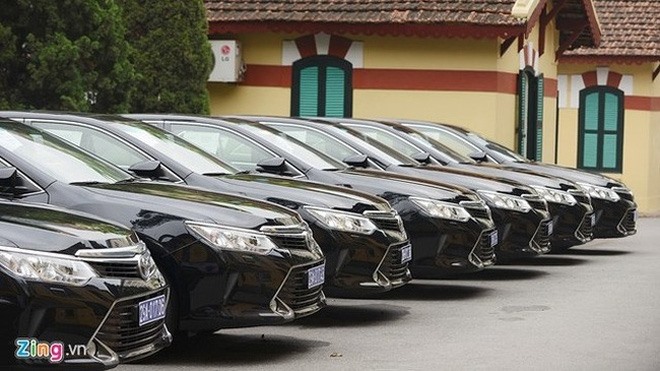 Op-Ed
Op-Ed

Under the Finance Ministry’s newly-issued decision, from October 1, six deputy ministers and heads of the ministry departments will have taxi fares subsidised, depending on the distance from the official’s house to the Ministry of Finance.
 |
Đinh Duy Hòa
Under the Finance Ministry’s newly-issued decision, from October 1, the six deputy ministers and heads of the ministry departments will have their taxi fares subsidised, depending on the distance from the official’s house to the Ministry of Finance.
Alternatively, they can use their own cars and still receive the subsidy, but using state-owned cars is prohibited.
It’s too early to talk about the impact of this decision, but the public has welcomed the move, expected to help cut public spending.
The use of state-owned cars has long been a problem. There are 40,000 state-owned cars currently in use in Viet Nam, with only 33,000 needed.
According to the Department of Public Asset Management under the Ministry of Finance, each car costs an average of VND320 million (US$13,800) in maintenance each year, adding more pressure to the state budget.
People have expressed their concerns over the abuse of state-owned cars. According to the law, only top leaders, such as deputy ministers and above, are eligible for the cars. But state-owned cars are often used by local level department heads.
The use of state-owned cars for personal reasons is another problem.
Given this context, an attempt to address the use of state-owned cars is encouraging.
But while the finance ministry’s move is a good initial sign for managing public spending, it has not addressed the core problem.
The ministry bans the six deputy ministers from using state-owned cars when traveling from home to work and vice versa, which means they are still able to use them when traveling during the day for business purposes. That means they still have to use a driver, and the state would still have to pay the driver and other costs relating to the car. And that means we are still losing the fight against wasting public assets.
How many state-owned cars are provided to officials is not as important as how the cars are used. Many officials provided with cars have misused the state property by mixing personal purposes and business purposes. This is a tremendous waste.
Even if all deputy ministers in the country switch to using taxis or their own vehicles to travel from home to work, but continue using state-owned cars for other journeys, we won’t save much.
How do other countries manage state-owned cars? Let’s look at Germany.
German law states that only the Chancellor, vice Chancellor and ministers can have state-owned cars. Germany has many rules on the use of state-owned cars. The first notable rule is about when officials can use state-owned cars: If travelling by other public transport like train or bus would cost less than using state-owned cars, then public transport must be used.
The second notable rule is in the way state-owned cars are managed: Each state-owned car has a separate monitoring notebook in which government staff take note of the time it is used, how many kilometres for each journey, and so on.
Maybe Viet Nam can learn from this, if we can start taking state rules seriously.
The number of officials eligible for state-owned cars in Viet Nam is huge, especially those who are not deputy ministers but benefit from similar treatments because of their title or ranking in government.
Maybe Viet Nam can learn from this, if we say no when officials want to “borrow” a state-owned car for their son’s or daughter’s wedding.
The fact that deputy ministers will not be able to use state-owned cars to travel from home to work is only a small part in the bigger picture of the need to cut spending. Tight management and bold attitude will help. Proper regulations and regular checks on violations will help. If the government can do this, we can save even more. If the government can’t do this, it’s harder to talk about fighting corruption.




